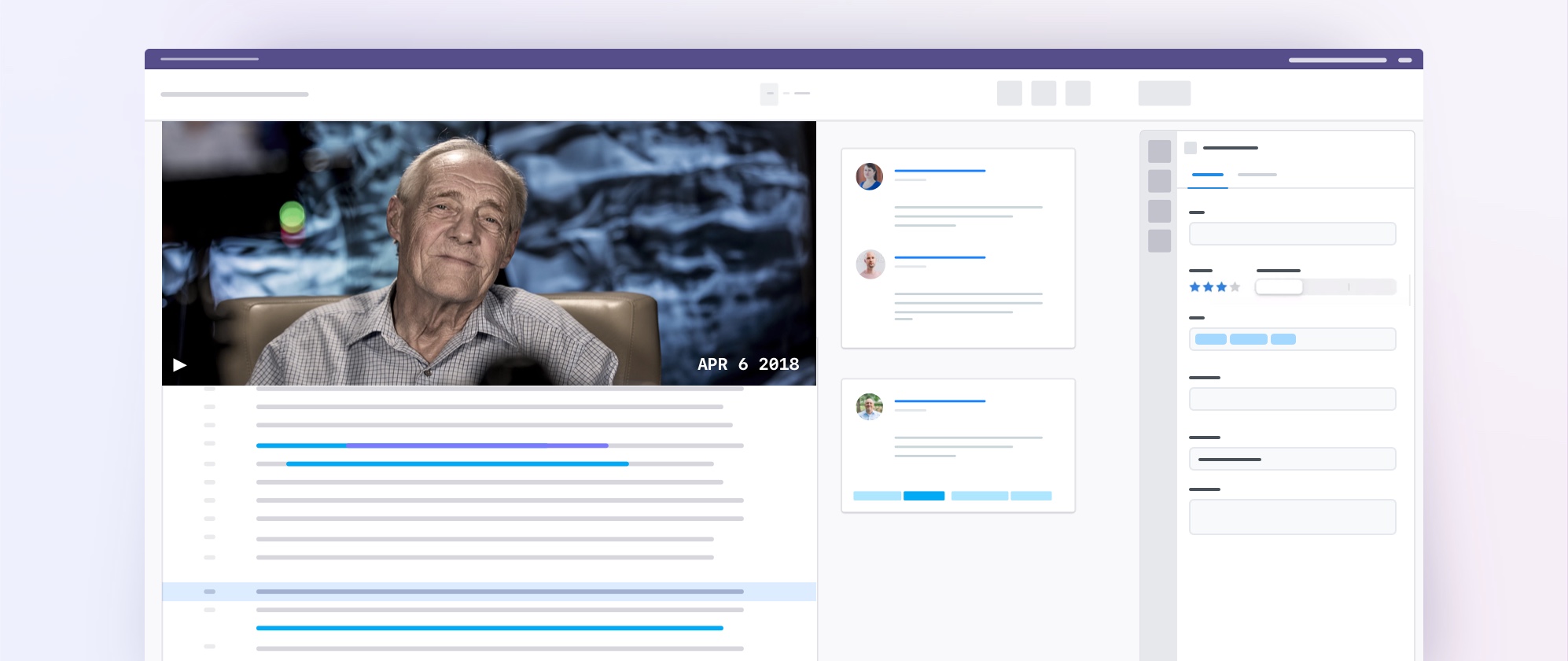
I recently did an interview with The Legal Technologist, which was included in their July 2021 issue. The discussion ranged from the formation of Everchron, to the litigation management software space, to the future of legal tech and its impact on the legal profession. In this post, we highlight some of that discussion below. For the complete interview, check out the full issue here - interview starts on page 39.
What makes Everchron unique amongst rival case management software solutions?
We don’t look to legacy tools or others to determine feature requirements. We have our approach to solving problems for legal teams, and anything we add to the platform needs to work with that approach. Our core focus is usability. We care a lot about building an intuitive application that’s both easy to learn and can handle the most complex of cases. For example, we have a video series that onboards our users in less than 30 minutes, and many users don’t even need that much time to get going.
Everchron is built for collaboration. It can be an active part of a case from start to finish, or it can be deployed for a specific aspect of a case. Typically, teams will start up a matter as soon as a new case comes in. With our robust chronology tool, teams flesh out the story of the case with key facts and documents, which will evolve through fact discovery and beyond. Our auto-generating profiles allow teams to build out the cast of characters of a matter. Profile analytics provide insights that lawyers can use to identify the most important people, relationships and issues. Teams can ensure that everyone who needs access to a matter has it, including collaborators at other firms or in-house.
What is your ultimate ambition for Everchron?
Our goal is to build what we call the operating system for lawyers, a universal platform for lawyers across the globe. That means a platform where a lawyer can perform all the substantive work needed for their cases and investigations. As artificial intelligence continues to streamline aspects of the profession, there will be legal work that will never be automated away. Such work might be augmented by AI, but it is the type of substantive work that will always require human judgment. We want lawyers to do that work in Everchron.
Also, we do not expect to replace other types of platforms relied on by legal teams, either for substantive tasks, such as e-discovery and legal research, or for practice management. Rather, case teams will be able to leverage these platforms through deep integrations with the Everchron OS. Insights from the Everchron matter will be used to identify, aggregate and elevate external data back into the matter.
What are the key challenges that legal tech faces today and how will these challenges be overcome?
Data is a key challenge on three fronts: volume, variety and security. The volume of potential evidentiary data continues to grow year over year. This aspect is not a new challenge per se, as this growth in enterprise data is the reason document reviews can no longer be done via bankers boxes. However, not only is data growing, but different types of data are being introduced at a faster clip. Lawyers need to deal with increasingly diverse forms of data and communication to understand their cases.
Traditional platforms were built to handle traditional forms of data. When it comes to e-discovery, email remains king – for now – but other forms of communication are expanding in impact, such as texts, chats, Slack messages and video calls. Legal tech will be further tested with the growth of ephemeral messaging services, encrypted communications and blockchain-based decentralized messaging. Platforms will have to continue to adapt to extract value from these types of communications.
Cybersecurity or protecting this data will always be a challenge for any tech company, and legal tech is no exception. Technically, it is a challenge that will never be overcome, as the nature of these threats continues to evolve. Legal tech companies will need to continue to devote meaningful resources to round-the-clock vigilance and protection. As legal teams increase their reliance on the cloud, they need to be able to rely on the security and availability of their solution providers.
Are lawyers reluctant to adopt legal tech?
I view it as caution rather than reluctance, and the distinction is important. Reluctance suggests an aversion to legal tech, but today’s lawyers are actively shedding the Luddite presumption that applied to the old school generation. Law firms and legal departments still tend not to be early adopters, but they fully recognize they face problems that require technology, including legal research, e-discovery, and case management. In turn, they are more than happy to embrace legal tech that adds meaningful value at an acceptable risk. The fact is the nature of disputes, investigations and transactions preclude lawyers from being averse to tech. You do not have to be on the cutting edge, but you cannot afford to fall behind.
How do you see legal tech changing the legal profession and the role of lawyers in the next 10 years?
In the next 10 years, the biggest challenge for lawyers will be adaptability in an ever-changing landscape. The nature of disputes is changing. The nature of transactions is changing. The nature of data is changing. Lawyers will need to stay on top of these changes, and legal tech will be critical to that effort. Legal tech has already become an integral part of the profession, and lawyers should expect this trend to continue. I expect that legal tech, beyond legal research, will become a bigger part of law school curricula.
Lawyers who embrace legal tech will spend less time doing work that can be automated away, and spend more time focused on the substantive work that they have been hired to do. In turn, lawyers and clients will be better aligned, leading to more effective advocacy.

